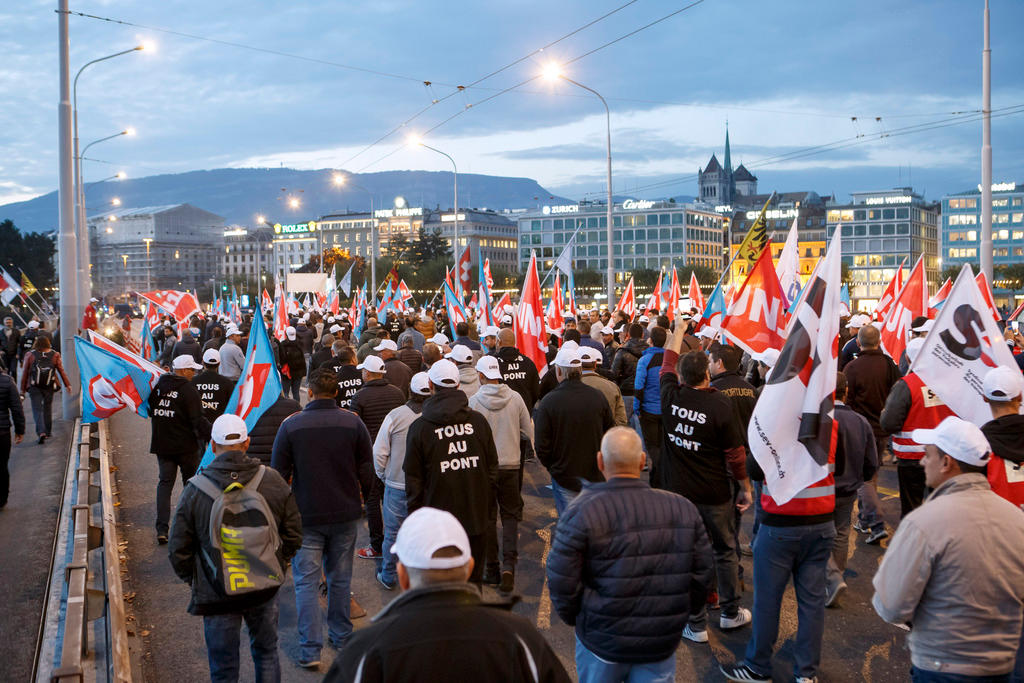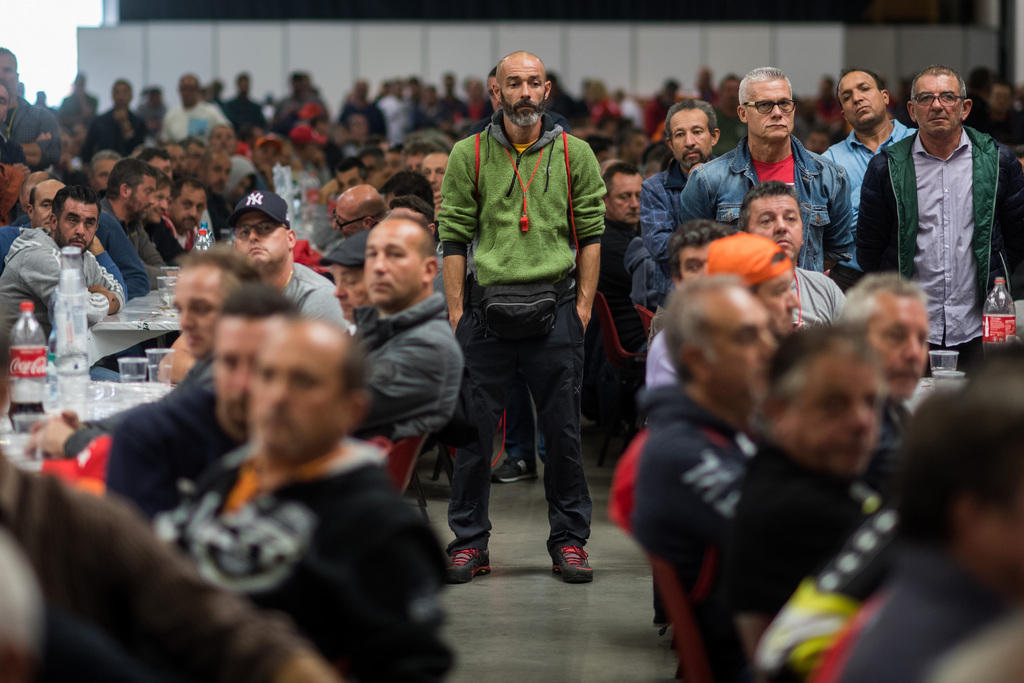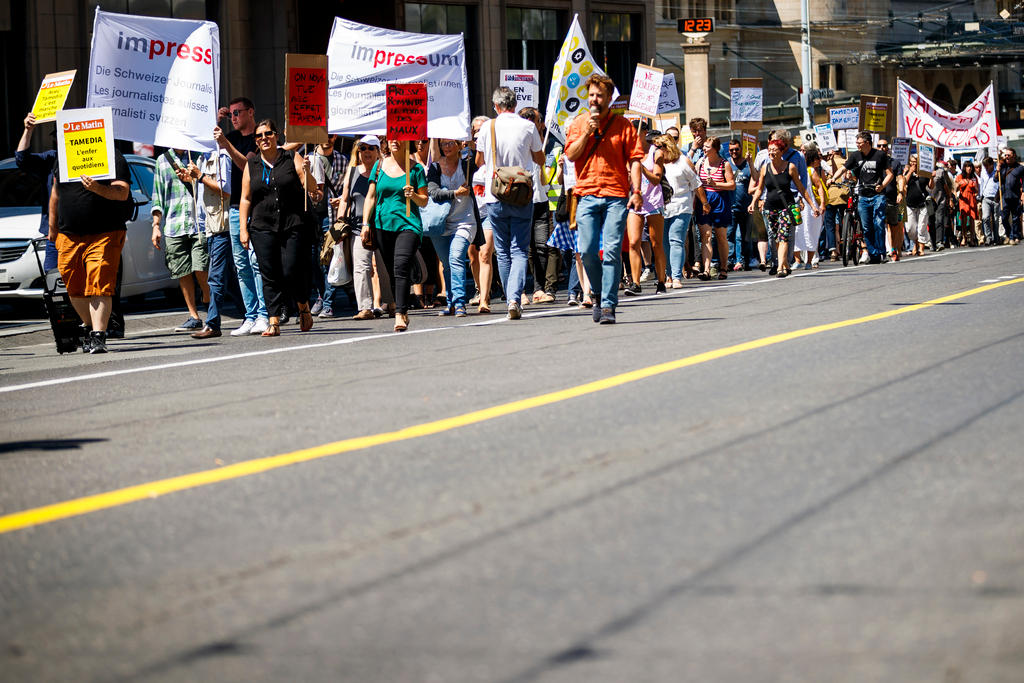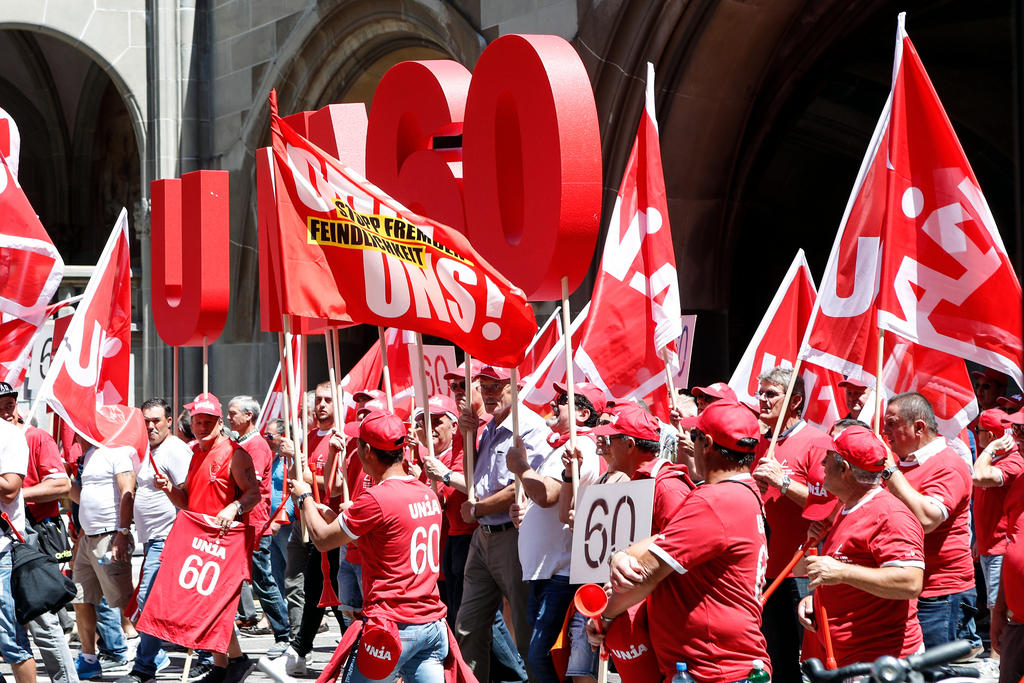Autumn of discontent in the land of labour harmony

Switzerland is not known for a high level of trade union organisation or for frequent strikes. But here too, labour conflicts sometimes erupt onto the streets. This is the case with the current dispute around working conditions in the construction industry.
For the second day running, on Wednesday, some 1,000 striking construction workers marched in Geneva. An estimated 1,800 took part on Tuesday. This comes after a similar protest by about 3,000 from the profession in canton Ticino on Monday.
The workers are protesting what they say are deteriorating working conditions, as well as demanding that the retirement age for the industry be kept at 60. Further action is planned in the rest of the country in coming weeks, a situation that could represent one of the biggest labour protests in Switzerland in recent years.
Seeds of discontent
The conflict has been in the air for a while. Last autumn, for the umpteenth time, construction workers expressed dissatisfaction at not having obtained a wage increase. In the months that followed, the disagreement extended to cover proposed reforms of the sector’s retirement fund – which is under pressure due to the retirement of the baby-boomer generation – as well as employers’ proposals for a new collective agreement.
In June, 18,000 construction workers had already demonstrated in Zurich in defence of retirement at 60 and against proposals by construction companies for flexible working hours.
A compromise solution seemed to have then emerged during the summer, but the unions are now accusing the employers’ organization of sabotaging the agreement. Employers want to make early retirement conditional on more flexible working hours, but workers say this is unacceptable.
The conflict in the construction sector may surprise those who see Switzerland as a country of labour harmony where preference is given to resolving disputes at the negotiating table rather than by strike action. Indeed, recourse to strikes in fact remains quite limited compared with other countries, as seen in the graph below:
In recent years, however, the strike seems to have regained some popularity in Switzerland. “In the past twenty years, there has been a resurgence of social conflicts in Switzerland,” Vania Alleva, head of the Unia trade union (some 200,000 members), told swissinfo.ch.
In the new millennium, various conflicts resulting in strikes have broken out, including the strike at Swissmetal in Reconvilier in 2006, at the Swiss Federal Railways workshop in Bellinzona in 2008, or more recent actions by journalists from the SDA-Keystone news agency and daily newspaper Le Matin.
In 2002, construction workers staged a series of strikes and large-scale protest actions that initially won them retirement at 60 years of age. The building industry is after all a sector with a strong trade union tradition and a relatively high degree of organisation. More than 40% of construction workers belong to a trade union, while the Swiss average is around 20%.
Since 1999, the right to strike has also been enshrined in the Federal Constitution.
Long-term data (see graphs below) confirm an increase in strikes since the mid-1990s. There have also been other peaks in labour conflicts linked to particular economic climates or phases of economic restructuring. For demographic reasons, the number of workers involved in strikes has increased sharply, and this probably also contributes to a higher visibility of strike action.
Translated from Italian by Julia Crawford

In compliance with the JTI standards
More: SWI swissinfo.ch certified by the Journalism Trust Initiative








You can find an overview of ongoing debates with our journalists here. Please join us!
If you want to start a conversation about a topic raised in this article or want to report factual errors, email us at english@swissinfo.ch.